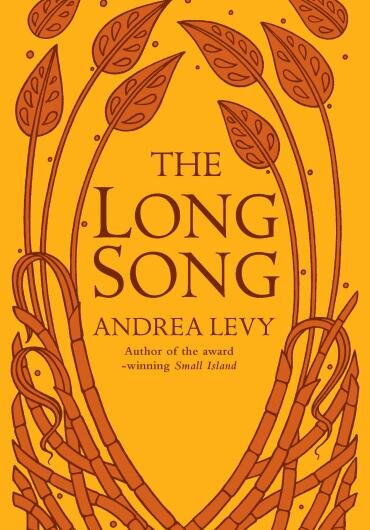Andrea Levy’s Unpredictable Approach to Slavery
Andrea Levy’s Unpredictable Approach to Slavery
Some time ago, novelist Andrea Levy met with a group of women to discuss her latest novel, The Long Song, a dark satire of the final years of Jamaican slavery as experienced by July, a young house slave.
The women, all White, shuddered at the mind-boggling barbarity of the island's planters.
"Which of you would ever admit to slave-owning ancestors?" one woman asked, looking around.
Shockingly, Levy raised her hand.
"Well, I should think so," said the author, who is descended from Jamaica's coloured classes. She spoke to me on the phone from England in the slightly arch tone I remembered from a previous conversation. "I am sure many of us have ancestors who owned slaves, whether we know it or not."
Over the course of five novels, Levy has built a reputation for delivering unpredictable responses and unlikely approaches to the topic of Britain and race. Her primary implement is humour, which she uses to smooth the rocky road to empathy and truth.
Her comedy erupts from her droll voice and her biting insight into human nature. Small Island (2004), her bestselling book about the trials of a Jamaican couple in blatantly racist postwar England, made readers roar.
In The Long Song, longlisted for the Man Booker prize, July's cringing, conniving trek from slavery to freedom elicits nervous laughter.
When it comes to slavery, however, laughter is a controversial matter. July survives the brutal aftermath of the Baptist War, the long peonage and stupendous poverty of "freedom," and the losses -- never-ending -- of loved ones.
Yet Levy insisted on a satirical approach. For one thing, she wanted to encourage White readers to finish the book. "Slavery is a real taboo subject with Whites, who don't find much in the story of which they can be proud. The guilt and shame can be incredible. But I wanted to write a story that Black people and White people would read -- and would want to read."
At the same time, she wasn't looking forward to studying one of the bleakest phases of human history, and so a mischievous heroine was her solution.
"July was a character I was going to have to sit with for six years, and I wanted to have some fun. I wanted to lighten what lives slaves lived, to show how cheeky they were and how they managed to survive this ordeal."
Who knows what changed Levy from a Black girl who wanted to be like everyone else in her North London neighbourhood to a woman obsessed with rummaging through her Jamaican-British heritage? She received little encouragement from home.
She was born in London in 1956, the youngest of the four children of Winston and Amy Levy.
Her parents were light-skinned Jamaicans who had settled in London after the war.
On the subject of race they were ambivalent, to say the least.
"My parents came from the coloured population," she explains. "And they liked to emphasize the White side, not the Black side.
"To be fair," she adds, "my mother did admit that one of her great-great-great-grandmothers had been born a slave, but only in hushed tones."
In her early years, she imbibed a sense of shame.
"I lived in Britain. I was Black. I was the lowest of the lows. I tried to distance myself."
In her first novels (Every Light in the House Burnin', Never Far from Nowhere and Fruit of the Lemon), Levy examines the dilemmas of her youth.
She plows fearlessly into the minefield of shade bias among Black people (the way light-skinned Blacks are favoured within the Black community).
The Long Song exposes the roots of this evil. Even though July is a product of rape, she is proud that her father, a vicious overseer, is White. She is overjoyed when the new overseer -- blue-eyed and handsome -- falls in love with her and takes her as his mistress, instantly elevating her status, level of comfort and sense of security.
"I was amazed," says Levy, "that it was not uncommon for a White planter to have a Black mistress, even living in the house with his wife. And he would expect his wife to be silent. White women didn't have much power."
Although, white women did have a voice. Quite a number of them wrote memoirs about life on Jamaican plantations.
On the other hand, Levy found it practically impossible to locate autobiographies of the island's female slaves.
"Everything I was reading I was reading from a white perspective. It was easier to tell the story through the eyes of a white person. I almost had to fight to keep it a black woman's story, the slave woman's story. It would have been easy to turn it around. “ Adds Levy, “I had to conquer that feeling completely."
This interview can be found in What’s a Black Critic to Do II. Sadly, Andrea Levy passed away in 2019 at the age of 62.






